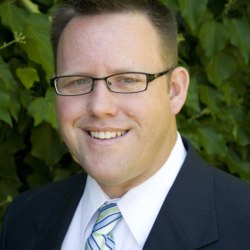Want to Rule the World? Run for Local Office
When interviewing for a legislative fellowship in Sacramento, California over two decades ago, the panel asked about my career plans. I worked through a progression I thought was essential for any aspiring politico, concluding confidently that I was eventually going to run for Congress. In my mind, that’s where all the important political action was. Or so I thought.
After receiving the fellowship, I began to see the serious work done in the state legislature and adjusted my sights. Congress was no longer of any interest. Shortly thereafter, a former college professor introduced me to the president of a significant educational association in Sacramento. We arranged a meeting where I could talk to someone who had capital city experience and could mentor me with career advice.
Our first meeting was cordial. After sharing my wide-eyed perceptions of the legislature, he asked about my aspirations. I told him I thought about running for office one day. He quickly responded, “Whatever you do, never run for local office.” Confused at his response, I naively queried, “Why?” His response has stuck with me ever since:
“Local officials have to be immediately accountable to the people. You will never go to so much as the grocery store without being confronted by the results of your decisions.”
He wasn’t wrong.
As the adage goes, all politics are local. And despite the current furor over presidential and congressional races taking place in media circles, the most consequential campaigns are going to be for local officials in your community. Hundreds of candidates for school board, city council, county supervisor, sheriff, water board, and so on are canvassing your neighborhoods and feeling their way through a complex process that is alien to a vast majority of them. For the most part, they are intent on fixing things, not simply posturing, as legislators do in Sacramento and D.C.
Right before my oldest child began kindergarten, our local school board decided to make an odd change in the schedule for the coming year. Though the district’s finances were relatively stable at that time, there were serious conversations about shuttering underused buildings, boundary realignments, long-term unfunded liabilities with employee retirement costs, and so on. These issues and a determined ally led me to run for the board in 2008, and that experience completely altered my view on politics.
Local conflicts are rarely—if ever—partisan issues. I found that when one begins to make consequential decisions about someone else’s children, especially school board trustees, things get heated quickly. Parents are unabashed in their priorities and rarely interested in compromise.
I also saw how much control the local teachers’ union had over the district’s decisions. In an effort to feel me out—the union wasn’t thrilled with one of the three incumbents running—they asked me to meet with their leadership. They wondered if I might be more amenable to their interests. I wasn’t, and they were willing to spend six figures to keep me out of office. It would be an uphill battle to secure one of the top-three slots that November despite support from a fairly robust grassroots campaign. While I lost in the final vote count, I won in so many other ways.
As I took on a statewide campaign for Superintendent of Public Instruction in 2022, I saw more clearly how critical local races were, especially when trying to make the case for education reform across the state’s 944 school districts.
At the same time, my colleague at the California Policy Center, Mari Barke, and I were developing a Leadership Academy practicum for those who win their elections and may not know the first thing about governing. We quickly realized that before those candidates won their elections—and there were thousands of local candidates on the ballot in the primary and general elections in 2022—there were few nonpartisan resources from a limited government, free market perspective to train them in running for office. The programs that existed barely understood the unique nature of California policy and politics.
Running for office isn’t for everyone. But if you want to be part of ruling the world, get on a local board or office. Much more can be accomplished from your local city hall or high school gymnasium than the marbled halls of Sacramento and Washington, D.C.
This article originally appeared in the Epoch Times.
Lance Christensen is vice president of education policy and government affairs at California Policy Center.
